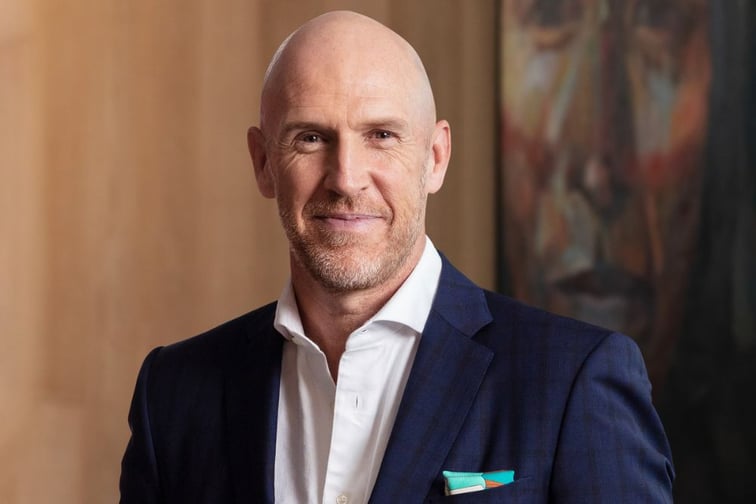

The Pew Research Center defines Generation Z as those born between 1997 and 2012. As a demographic that has seen extreme highs and lows, from the seemingly unstoppable advance of technology and the economic downturn caused by the pandemic, it is a generation that is facing unique challenges.
“Compared to other age groups, they are more uncertain about the future, struggle to separate their work and personal lives, find it difficult to cope with the pace of change at work, and don’t feel like they have work-life balance. Only half feel like their jobs fit their skill sets,” AXA chief Gordon Watson (pictured above) said in conversation with Insurance Business Asia.
Watson’s remarks are part of his in-depth thoughts on the recent Study of Mind Health revealed by the insurer. The study found that compared with other demographics, five in 10 Asian “zoomers” – a term used to describe those belonging to Gen Z – were found to be suffering from poor mental health stemming from a multitude of issues.
That said, the factors behind these issues may not be as cut and dried, with Watson citing the recent troubles caused by COVID-19 as the uniting thread that ties it all together. Consulting with Gen Z researcher Meghan Grace, he tried to paint a picture of what is possibly going on inside the mind of a zoomer.
“One reason this group may be particularly troubled is that, while all generations went through the pandemic, only Gen Z did so during their late teen and young adult years when most people develop key interpersonal skills as well as professional and career planning. It is also a time in development when many of them would be learning how to independently take on challenges and how to maintain a sense of security on their own,” he said.
Watson added that the technology that is giving this generation advantages over older demographics may also be giving them uncertainty.
“The constant cycle of information about the next frontier or evolution in the workplace makes Gen Z feel that the skills they have might not be sufficient for what is coming next. Even prior to the pandemic, many in Gen Z felt they are preparing for jobs that do not exist yet because they see that industries and organizations are changing at a rapid pace,” he said.
As the earlier generations settle into older ages, it’s expected that the younger generations start to take over. Watson pointed to the issues this presents given the higher rates of mental unwellness amongst the youth.
“Gen Z represents a significant portion of our workforce. If these issues regarding their poor mental wellbeing go unnoticed, there will be a significant drain on productivity, retention and performance,” he said.
The study found that one in four Gen Z workers resigned in the past 12 months, with one in five also planning to resign in the same period. Watson expressed his hope that these findings can serve as a catalyst for employers to take immediate action and halt the degrading mental health of zoomers.
“By proactively supporting mental wellbeing for Gen Z, employers can reduce costs and, even more importantly, support a healthier and more productive employee base. In Asia, companies that provide mental health support are 2.5 times more likely to have employees that are flourishing,” Watson said.
Highlighting the importance of supporting this present and future workforce, Watson said that the study aims to give everyone involved a better view of the challenges faced by Gen Z in their lives and careers.
“For the Gen Z group, it is important to listen to them and understand their needs and concerns, which will enable us to connect with them in a deeper way,” he said. “Gathering data and insights has been a key part of it, which is why our AXA Study of Mind Health and Wellbeing this year dives into their mind health and the issues they face, giving us a better understanding of the challenges that they face in life and in the workplace. We hope these findings equip companies with useful insights to help Gen Z staff maximize mental wellbeing and provide support relevant to their needs.”
Addressing companies and businesses, Watson also laid out some advice to help tackle the unwellness that Gen Z faces.
“Companies can adopt a comprehensive mind health approach by following the 3P framework, spanning the key components of mental health solutions: Protection, Promotion and Provision. To protect includes offering mental health training to Gen Z staff to equip them with the resources to identify risks and take action,” he said.
Watson added that promoting the importance of mental health among Gen Z staff is key, including the development and sharing of positive work aspects. Checking in with these young workers and professionals can also be very helpful, as doing so can inspire behavioural changes and improved capacities.
“All these shall be accompanied by providing access to relevant information, solutions and services, which can be in the form of employer benefits, online consultation support and mind health-related content. Gen Z employees are in the early stage of their career, so training programs and workshops that support their wellbeing and growth will be essential. These contribute to cultivating an inclusive and well-being-friendly environment where Gen Z employees feel psychologically safe to bring their whole selves to work,” Watson said.
Ultimately, it’s what gets measured that gets improved, Watson said, and that is the key to approaching this issue. Metrics revealed by various studies can help employers gauge the impact to make more effective investments toward the improvement of Gen Z mental health.
“This is why AXA is now leading the development of the Mental Health at Work Index, intended to be the first framework to establish global standards for workplace mental health and promote science-backed best practice,” Watson said.
What are your thoughts on this story? Please feel free to share your comments below.
